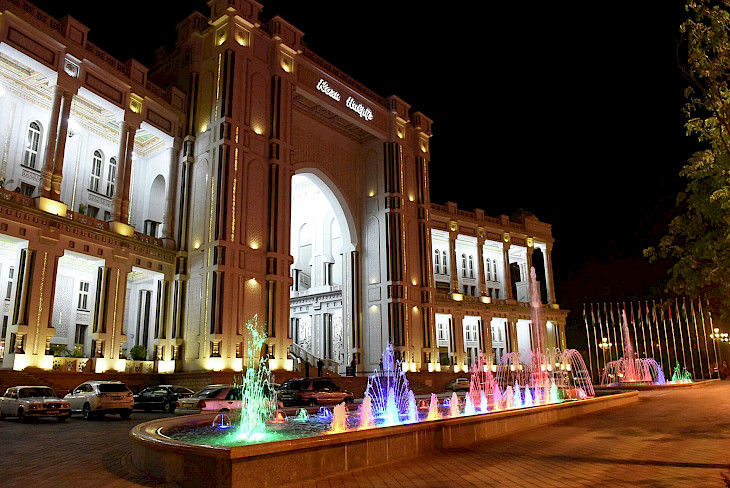The recent consultative meeting in Dushanbe, attended by all the heads of state from Central Asia, concluded with extremely modest outcomes that do not bind anyone to anything, remaining merely declarative statements, according to Professor Alexander Knyazev from St. Petersburg State University and a leading researcher at the Institute of International Studies at MGIMO of the Russian Foreign Ministry, Podrobno.uz reports.
"As expected, the latest consultative meeting of Central Asian country presidents in Dushanbe ended with even more modest results than all the previous ones since 2018, not shining with any practical successes," noted the expert on Afghanistan and Central Asia in his Telegram channel, "Eastern Review."
"The agreement 'on common youth policy directions'—what does that mean? Nothing. The agreement 'on strengthening the connectivity of ground transport in Central Asia' sounds good in principle, but even the very reasonable and interesting proposal by Uzbekistan's President Shavkat Mirziyoyev to reduce transit cargo tariffs seems to have been left hanging," added the expert.
According to him, the "Agreement on Friendship, Good Neighborliness, and Cooperation for the Development of Central Asia in the 21st Century" remains a declaration for three countries, not obligating anyone to anything. This agreement has been signed by Kyrgyzstan, Uzbekistan, and Kazakhstan so far. The presidents of Tajikistan and Turkmenistan, who participated in the signing ceremony of the agreement in Cholpon-Ata in 2022, did not put their signatures on the document, citing the need for domestic procedures. Overall, this can be seen as a polite refusal of the agreement. President Rahmon's position can still be explained by unresolved border issues with Kyrgyzstan, but Turkmenistan's position can only be explained by the country's well-known policy of neutrality.
"The significance of the consultative meeting format, having not achieved much, is on a downward trajectory," concluded Knyazev.
At the Dushanbe Summit, Shavkat Mirziyoyev, as part of the consultative meeting, put forward a series of initiatives on joint border protection and strengthening, intensifying negotiations with the Taliban, creating a full-fledged trade zone, building new power transmission lines, and several others.
Another noteworthy observation during the Summit is the absence of Kyrgyzstan's President Sadyr Japarov at the gala concert in honor of the participants of the Consultative Meeting, while all other participants were present in the hall, including President Ilham Aliyev of Azerbaijan.
However, some experts in the Central Asian countries consider that such Consultative Meetings, which have been held regularly since 2018, are already a positive outcome. According to experts in Kyrgyzstan, the complex relations between some members in this format, such as between Tajikistan and Kyrgyzstan, are noticeably improving and influencing the positions of the parties in negotiation processes. Other experts believe that expecting practical results after every meeting in this format would be unrealistic.
A unique aspect of the Dushanbe summit is that, for the first time in such a format, the president of a country from a completely different region, Azerbaijan, was invited to the meeting. Furthermore, after the meeting of the five Central Asian presidents, the founders of the International Fund for Saving the Aral Sea, consisting of three states directly related to the Aral Sea and Tajikistan, through which both rivers that fed into the disappearing sea flow, held a session. From 2024, the president of Kazakhstan has been elected as the president of this Fund and has invited its members to hold the next session in Kazakhstan.
On photo: Kohi Navruz palace in Dushanbe, where the Summit took place
CentralasianLIGHT.org
September 15, 2023

